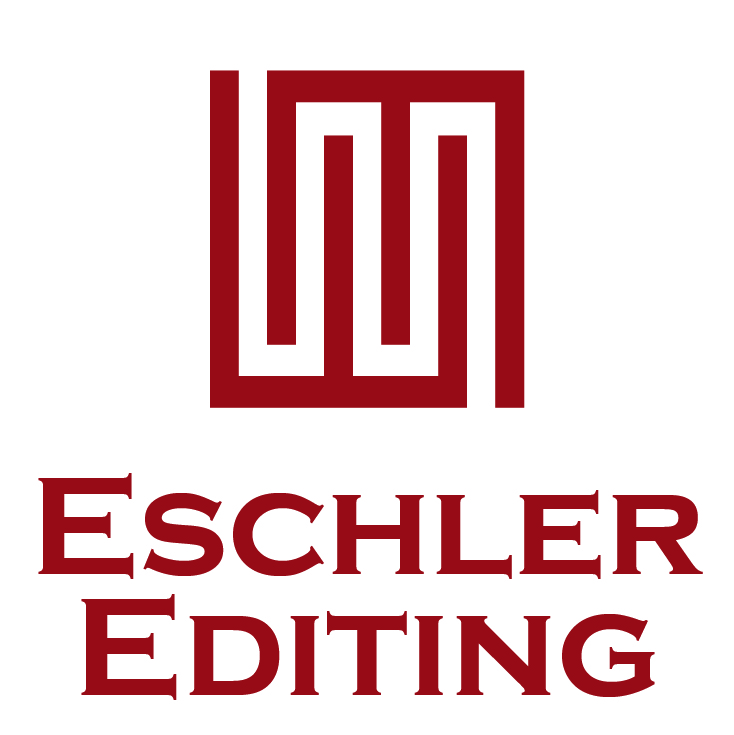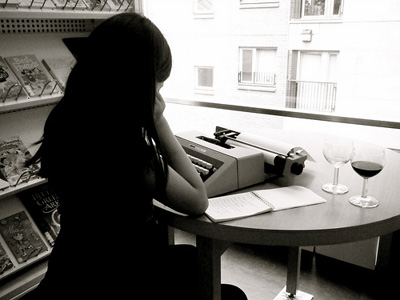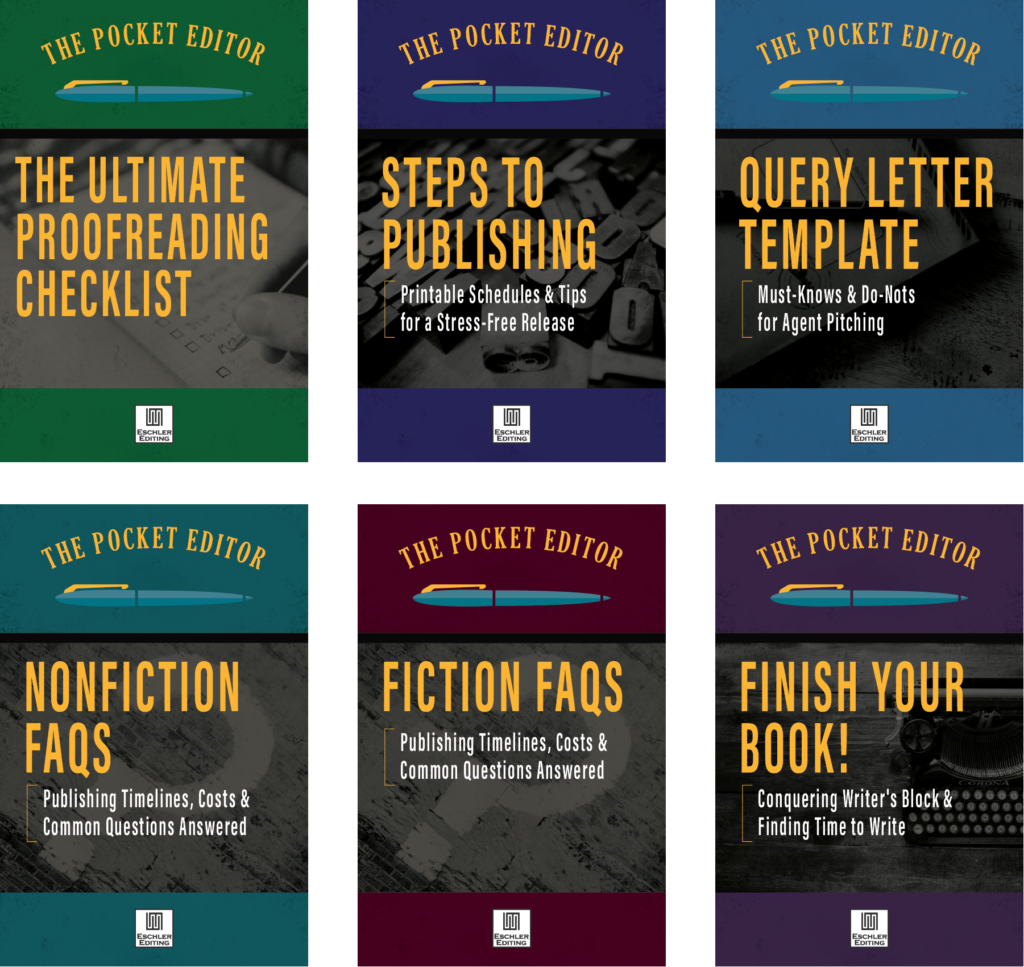A Memoir, Edited
Hook Critique Series: Article 5
Every quarter or so we show you some live content editing, focusing on the opening pages of a work in progress. The hook is undoubtedly one of—if not the—most important parts of your book. It’s your big chance to capture the reader, agent, or editor of your dreams. So getting it right is important. (To get the full scoop on what this series is all about, check out the series introduction here.)
Without further ado, let’s jump into this review. The content editing notes follow the writing sample.
* * *
Author: Lee Hinkle
Genre: Memoir
The Sample:
In college, I was a cheap date. If a guy asked me what I’d like to do, I’d often suggest a drive out to the end of Imperial Boulevard, which runs parallel to the south side of Los Angeles International Airport to watch airplanes take off and land. If he didn’t know me very well, the guy inevitably interpreted my response as a come-on and would happily, eagerly agree to the excursion. However, by the third date, he would likely sigh and say something like “Not again.” If our relationship made it as far as a fourth date he knew better than to ask.
Why do I feel this weird cosmic link to airplanes? I wish I knew. It has been there inside me for as long as I can remember. I’m just fascinated by those sleek, metal birds that soar high above all that is mundane and earthbound. Oddly enough, my fascination and passion for them have never translated to wanting to actually pilot one. Mostly, I just want to look at them, experience their kingly presence, delight in their amazing ability to whisk me away to anywhere else, watch and listen to their splendid roar as they climb into the sky, and breathe in the heavenly scent of jet fuel left trailing in their wake.
My love for airplanes is best illustrated by my choice of apartments when I went to work for Continental Airlines at in Los Angeles back in 1977. I rented an efficiency apartment at the end of Imperial Avenue in El Segundo, CA, which was located directly across the street from one of the runways at LAX. My new address blessed me daily with the opportunity to hear the roar of jets taking-off and landing practically in my own front yard. It was music to my ears, though visitors to my apartment often were jarred by what they described as noise. Imperial Boulevard parallels the south side of Los Angeles International Airport (LAX). It ends at Pershing Drive, which runs parallel to the Pacific Ocean.
* * *
Editorial Review
Every life is a story, and every person’s story is worth telling. The trick is in telling it properly, so that it has maximum impact.
There are as many reasons for writing a memoir as there are people. Memoirs can be fancy or fussy, complex or simple, full of whimsy or gravitas. They can be broad and expansive, covering a long life, or short and focused. They can explore one season in your life, one experience, one angle, or they may try to tie up the myriad of experiences that define you as a person into an overarching whole. A memoir is an invitation to the world to share in your life’s journey, whether it’s for the space of a year in Provence, the span of a wild childhood, the length of a war, or the sum of an entire life with the marrow fully extracted.
You can write at the start of your journey, the middle, or the end, from the perspective of childhood or the wisdom of age. And, much like a novel, a memoir should have narrative resonance—a compelling story structure that feels very much like a plot (at least for a commercially viable memoir). Still, so much choice can leave you feeling indecisive and unsure of where to start.
What I Like
The narrative is a little quirky and off-kilter. I’m left with the impression that the person I’m accompanying on this journey has a sense of humor—always a positive thing in a traveling companion.
The first line really is great, setting up a fun and interesting premise. It would be a good hook if you are sure that’s what your story is about. Although it has potential, you want to be sure it is the right one for the story you want to tell. Below are some thoughts on creating a strong opening for your story.
Are You Starting in the Right Place?
Every beginning of a story has an inherent promise in it. The words, the events you choose to talk about in the opening paragraph and first few pages are an indication to the reader that those are important and hold weight. Therefore, if you start your story with a puzzle, an enigma (why this “weird cosmic link” to planes?) you must be prepared to follow through and explain it over the course of the story, or at least by the resolution. Right off, as a reader I’m already a little doubtful that I will be satisfied, since I’ve already been informed that the storyteller doesn’t know why she feels such a magnetic pull to these magnificent carriages of the sky. That’s not necessarily the strongest starting position. How you position the events, what weight you give them, what interpretation, what order you relate them in, will all impact the effectiveness of your tale.
Although a memoir is nonfiction, it can benefit from many of the same guidelines that inform fiction writing. So your opening, your hook, your first five pages, all these are prime real estate. Every word counts, and you want to maximize their impact. Just as you want to start with a story-worthy problem in fiction, in a memoir, a great place to start is a life-changing event.
What is your inciting incident? The inciting incident in fiction is the event that brings the main character to a realization of the main problem that is going to propel the plot forward. In a memoir, a life-changing event can fill this role.
Take, for example, the first three paragraphs of The Glass Castle by Jeannette Walls. The author relates how she is in a cab on the way to a party, and looking out the window she spots her homeless mother going through the Dumpster, and the author is panicked at the thought of her mother recognizing her and greeting her, and of other people seeing them together. This would be gripping if it were fiction. Knowing that it’s real makes it even more intense.
What is your beginning doing to pull people into the story? People who love planes may be intrigued (or they may be confused as to why someone who is so fascinated with planes has no desire to fly one). People whose interests lie elsewhere may not be as hooked. And what is the problem or life-changing event? Of course, there’s always the possibility that your story is not really about how your fascination for planes has shaped and molded your life. But in that case, a different opening anecdote may be a stronger pick.
The other possibility is that this is an examination of your relationship experiences. That’s what your first sentence and paragraph focus on: your dating patterns and attitudes. But that theory runs into a conflict when the love of planes is brought on stage. The reader may wonder: is your love of planes interfering with your love life? If that’s your intended message, all’s well. If not, you may want to reimagine your beginning.
What belongs on the first page? I mentioned earlier that your first page is prime real estate. You don’t want to waste a millimeter of space. But your first three paragraphs mention Imperial Boulevard and its location three times with slight variations. Unless this location is where a life-shattering event is going to occur, once is enough (and even in that case, once is enough). There is also no need to put that information into a footnote, especially since it’s been adequately explained within the body of the text. Be sure that you don’t get sidetracked by tangents in this vital opening section.
Take a Page from Someone Else’s Story
The Glass Castle traces Jeannette’s journey through childhood with parents who are little better than children themselves. In the face of her father’s gambling and alcoholism and her mother’s erratic behavior, Jeannette and her siblings face poverty, danger, and instability, moving precipitously from one town to another. Eventually, the Walls children must forge their own lives. Jeannette writes honestly but without self-pity or a feeling of victimization. Surprisingly, there is love and affection and charming memories mixed into the harsh realities of her life, such as the night her father takes the children outside one at a time and lets them pick out a star for their Christmas gift. The structure that Jeannette uses for her story starts with a moment of painful clarity and then loops the readers back to the beginning of her childhood, so that they can experience it chronologically along with the author. The resolution comes as she reminisces about her life after her father’s death.
Like a snowflake, no two life experiences are the same (not even within the same family). But that doesn’t mean you can’t borrow structure from other memoirs to enhance your own story, just as multiple poets can use the same structure (say a sonnet) to achieve vastly different results.
Last Thoughts
In sum, be sure you can answer the following questions: What message do you want to convey to your audience? What life-changing event best propels your story forward? At what point does your journey reach a resolution? (This will be the logical end point of your story.) This will not only help launch your story, it will keep your narrative focused and bring it to a satisfactory conclusion. It takes courage and passion and integrity to bare your soul and reveal a part of your innermost self to the world, but it can be a deeply rewarding and uplifting experience.
Best of luck on your journey and revisions!
Angela Eschler and Heidi Brockbank
* * *
NOTE: This critique was originally posted on author Julie Bellon’s First Page Friday Critiques. Several professional editors contributed to the series. You can read more of those critiques here.
Your turn. Name a memoir you find compelling, and tell us why.





This was so helpful! I just love all the things I’m learning in these critiques. Your advice is to the point and easily understood. Thanks!
After the critique and further thought, I decided to begin the book in a different place. I made some changes to the original first page, which you critiqued, and moved it to a place further along in the book, using it to transition from present to past.
Since the book in its current form is a memoir, I self-published only a few copies to distribute within our family. However, I am working on a fictional version of the book to submit for publication.
I think that’s a great idea, as fiction and memoir share structural and dramatic similarities. Best of luck!
It can be easy to group everything we write about ourselves as “memoir,” but there is an important distinction to be made: Autobiography is really just the chronology of the writer’s entire life, while memoir covers one specific aspect of the writer’s life.
Lee’s example introduces a potential theme (airplane watching). I would certainly be interested to see how she found a place for this example in her final product and what themes or events she chooses to focus on.
Elizabeth Gilbert’s “Eat, Pray, Love” is a recent and popular example of memoir and focuses on a particular time period in her life, just after a bitter divorce. It’s self-discovery and some brutal honesty, mixed with humor and beautiful locations, friendly people, and food. A lesson can be learned by comparing it with Rita Golden Gelman’s memoir with a similar theme, “Tales of a Female Nomad,” which didn’t quite come off. Gelman’s education and training are in anthropology and, as a result, she kept herself at a distance from her experiences. There’s something to be said for Gilbert’s passion and more hands-on approach. And it worked; very few people have probably heard of Gelman’s after-divorce memoir, while everyone has heard of “Eat, Pray, Love.” I certainly wouldn’t mind if Julia Roberts played me in a movie falling in love with Javier Bardem …